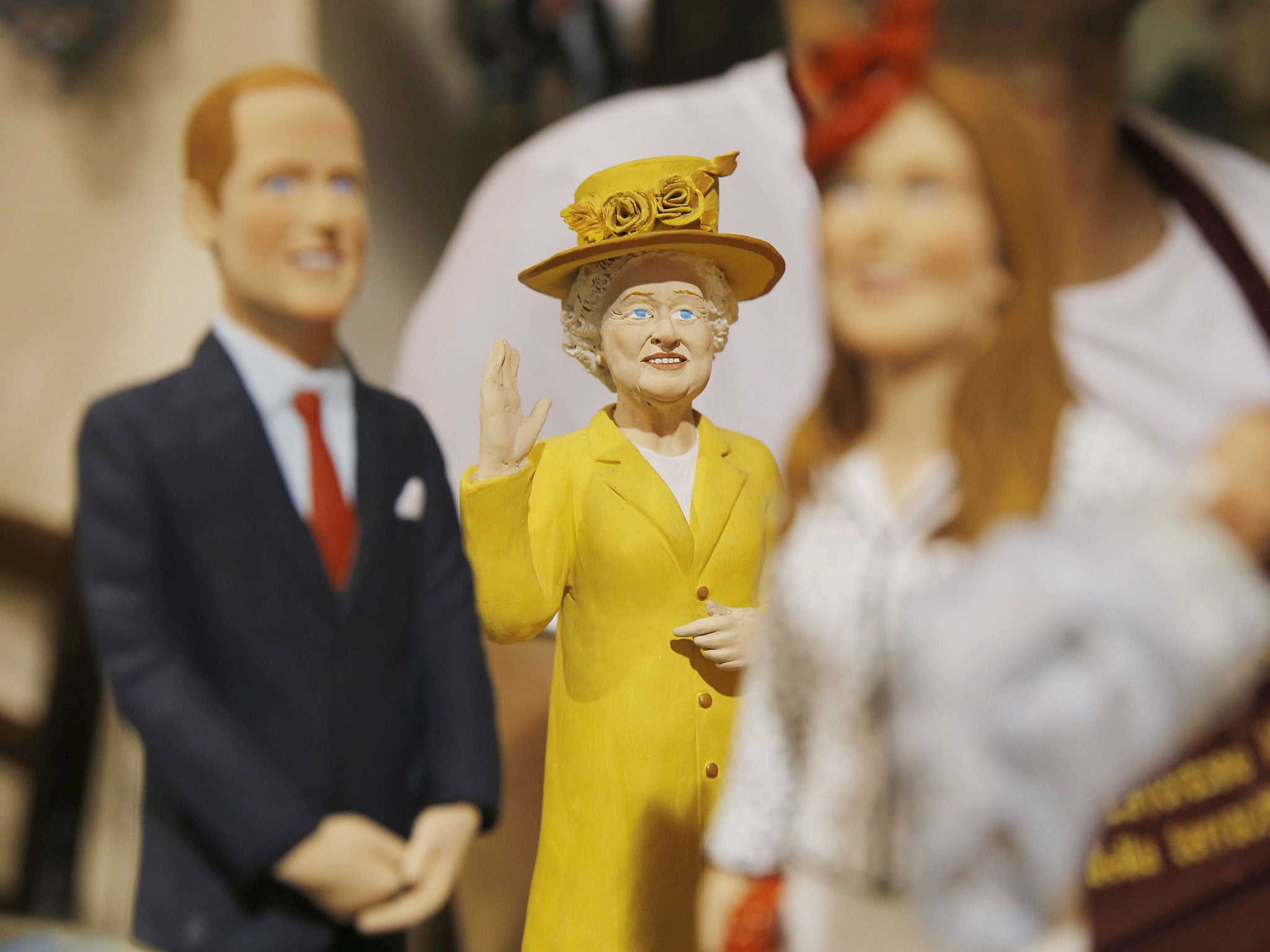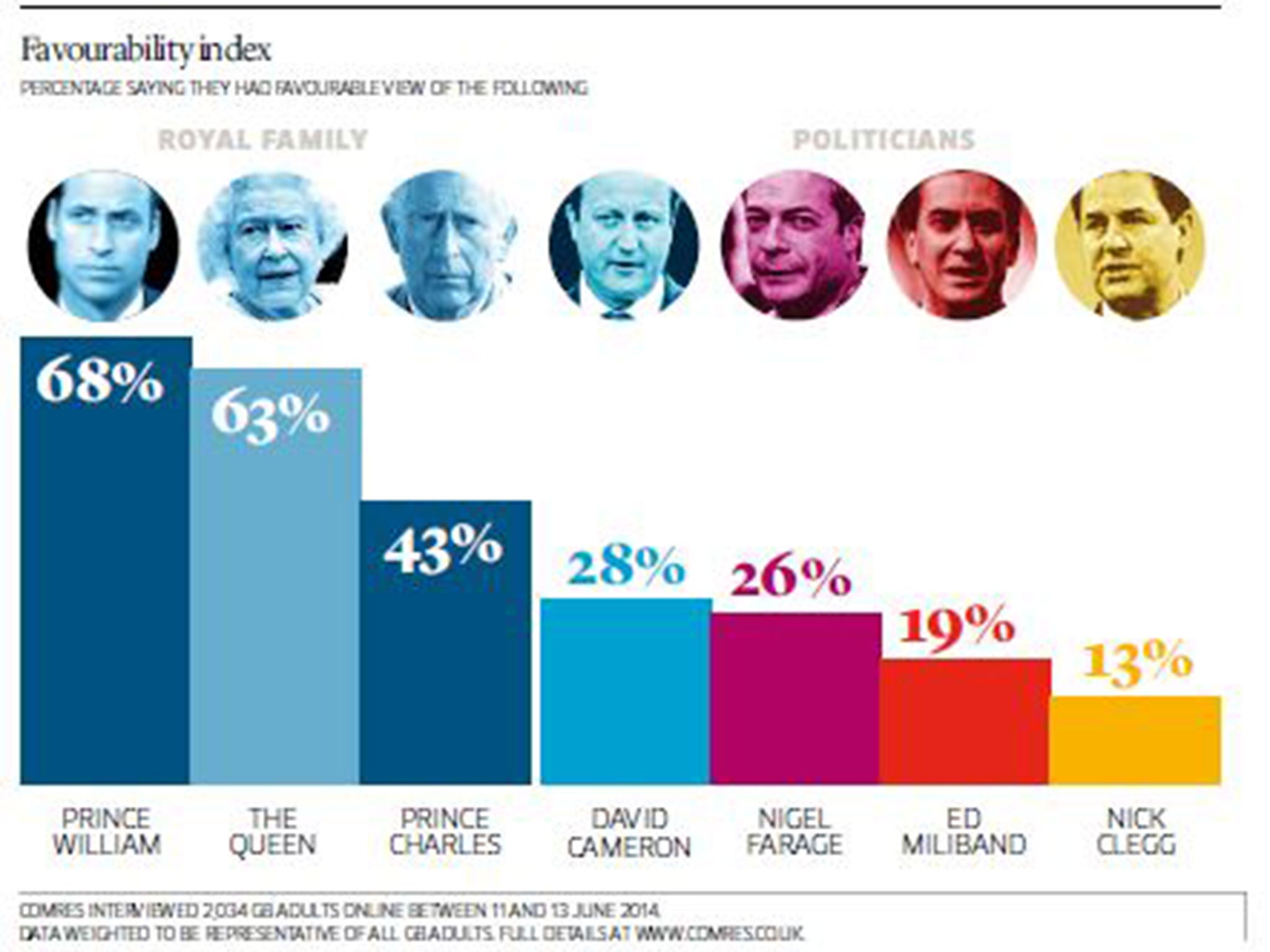Prince William 'more popular than the Queen,' poll reveals
Our new ComRes poll also reveals a shrinking Labour lead... and that Ed Miliband has been overtaken by George Osborne

Your support helps us to tell the story
From reproductive rights to climate change to Big Tech, The Independent is on the ground when the story is developing. Whether it's investigating the financials of Elon Musk's pro-Trump PAC or producing our latest documentary, 'The A Word', which shines a light on the American women fighting for reproductive rights, we know how important it is to parse out the facts from the messaging.
At such a critical moment in US history, we need reporters on the ground. Your donation allows us to keep sending journalists to speak to both sides of the story.
The Independent is trusted by Americans across the entire political spectrum. And unlike many other quality news outlets, we choose not to lock Americans out of our reporting and analysis with paywalls. We believe quality journalism should be available to everyone, paid for by those who can afford it.
Your support makes all the difference.The Duke of Cambridge is more popular than the Queen, a poll for The Independent on Sunday reveals today.
Prince William is regarded favourably by 68 per cent of voters, compared with 63 per cent for his grandmother and only 43 per cent for the Prince of Wales.
The three royals are more popular than all the politicians tested in the ComRes survey, with even Prince Charles beating Boris Johnson, the top-rated politician, in the favourability stakes.
The poll also reveals that Labour's lead over the Conservatives has fallen to two points, the lowest margin in a ComRes survey in more than two years. After another difficult week, Ed Miliband's personal rating has been overtaken by George Osborne's, while Theresa May, the Home Secretary, remains more popular than her Cabinet rival Michael Gove. Mr Johnson, as the most popular politician, is followed by David Cameron and William Hague, the Foreign Secretary.
Labour is on 34 per cent, up one point on last month, but the Conservatives have risen three points to 32 per cent – picking up some support from Ukip, who are down one point to 18 per cent, and the Lib Dems, down one point to just 7 per cent. Two months ago, Labour's lead was six points, before dropping to four points last month and narrowing further still this month.

If there were a general election tomorrow, Labour would win with a majority of 24 seats. However, the two-point lead for Labour will still cause alarm in the party's HQ, particularly as it has been steadily narrowing, with 11 months left until polling day.
The Prime Minister is the most popular of the four main party leaders – 28 per cent of voters view him favourably, while 26 per cent view Mr Farage favourably.
In February, Mr Farage was the most popular party leader, suggesting support for him could continue to wane until the general election. Mr Miliband is favoured by 19 per cent of voters, the same amount who view Mr Osborne favourably – although more people are unfavourable to the Labour Party leader than to the Chancellor.
Nick Clegg is viewed favourably by only 13 per cent of voters. However they are all beaten by the London Mayor, who is viewed favourably by 41 per cent.
Mrs May is backed by 16 per cent of voters, compared with 9 per cent for Mr Gove. Among Tory voters, 35 per cent view the Home Secretary positively, while 21 per cent regard the Education Secretary favourably. Mr Hague is viewed positively by 25 per cent of the public.
Last week, following the row between Mr Gove and Mrs May and the report by Ofsted into claims that Muslim fundamentalists were trying to infiltrate schools in Birmingham, the Government announced that "British values" should be taught in all schools. When voters were asked which values were the most important in this country, freedom of speech came top, backed by 48 per cent, while 34 per cent chose respect for the rule of law, followed by fairness and tolerance – each being chosen as important by 27 per cent of people.
Join our commenting forum
Join thought-provoking conversations, follow other Independent readers and see their replies
Comments